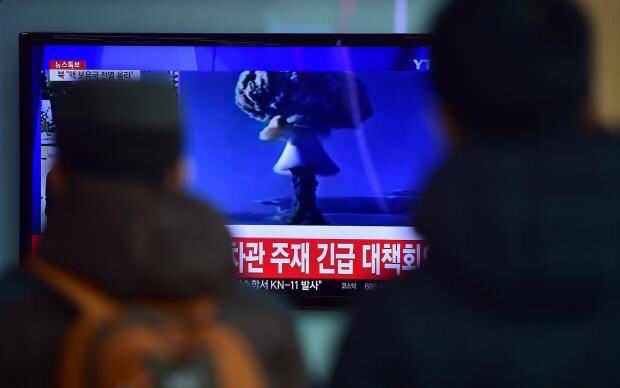 Nuclear weapons could be launched by mistake
Nuclear weapons could be launched by mistakeAndrew Griffin
Thursday 11 January 2018 14:54 GMT
Hackers could cause nuclear weapons to be accidentally launched against other countries, according to a major new report.
Systems have a number of vulnerabilities that could allow cyber attackers to break in and use them to inadvertently trigger deadly nuclear weapons, defence think tank Chatham House has warned. There is a high chance that hackers will break into sophisticated nuclear systems, the organisation added.
If those hacks allowed attackers to instal malware or viruses, it could lead countries to make decisions using false information. If systems went down, then a country believing it is under attack, when it isn’t, could launch deadly nuclear warheads by mistake.
“Nuclear weapons systems were first developed at a time when computer capabilities were in their infancy and little consideration was given to potential malicious cyber vulnerabilities,” the report’s authors said.
“At times of heightened tension, cyber attacks on nuclear weapons systems could cause an escalation, which results in their use.
“Inadvertent nuclear launches could stem from an unwitting reliance on false information and data. Moreover, a system that is compromised cannot be trusted in decision-making.”
The report suggests the likelihood of attempted cyber attacks on nuclear weapons systems is “relatively high”, and cites information that the US may have infiltrated parts of North Korea’s missile systems last year and caused test failures.
Chatham House warns that a mistaken missile launch could result in a “significant loss of life”.
The authors added: “Cyber vulnerabilities within nuclear weapons systems and structures present a whole set of dangers and risks.
“At best, cyber insecurity in nuclear weapons systems is likely to undermine trust and confidence in military capabilities and in the nuclear weapons infrastructure.
“At worst, cyber attacks could lead to deliberate misinformation and the inadvertent launch of nuclear weapons.
“In times of crisis, loss of confidence in nuclear weapons capabilities would factor into decision-making and could undermine beliefs in nuclear deterrence – particularly in extending nuclear deterrence to allied countries.”
The report, titled Cybersecurity of Nuclear Weapons Systems: Threats, Vulnerabilities and Consequences, said the issue required “urgent attention” from the governments of nuclear-armed states and those that could be affected by the use of nuclear weapons.
Chatham House also urged governments to be open about their discussions, adding: “After all, it is the public that will pay the ultimate price for complacency regarding cyber security of nuclear weapons systems.”
According to a Stockholm International Peace Research Institute report from 2014, nine countries have nuclear forces: the United States, Russia, UK, France, China, India, Pakistan, Israel and North Korea.
No comments:
Post a Comment